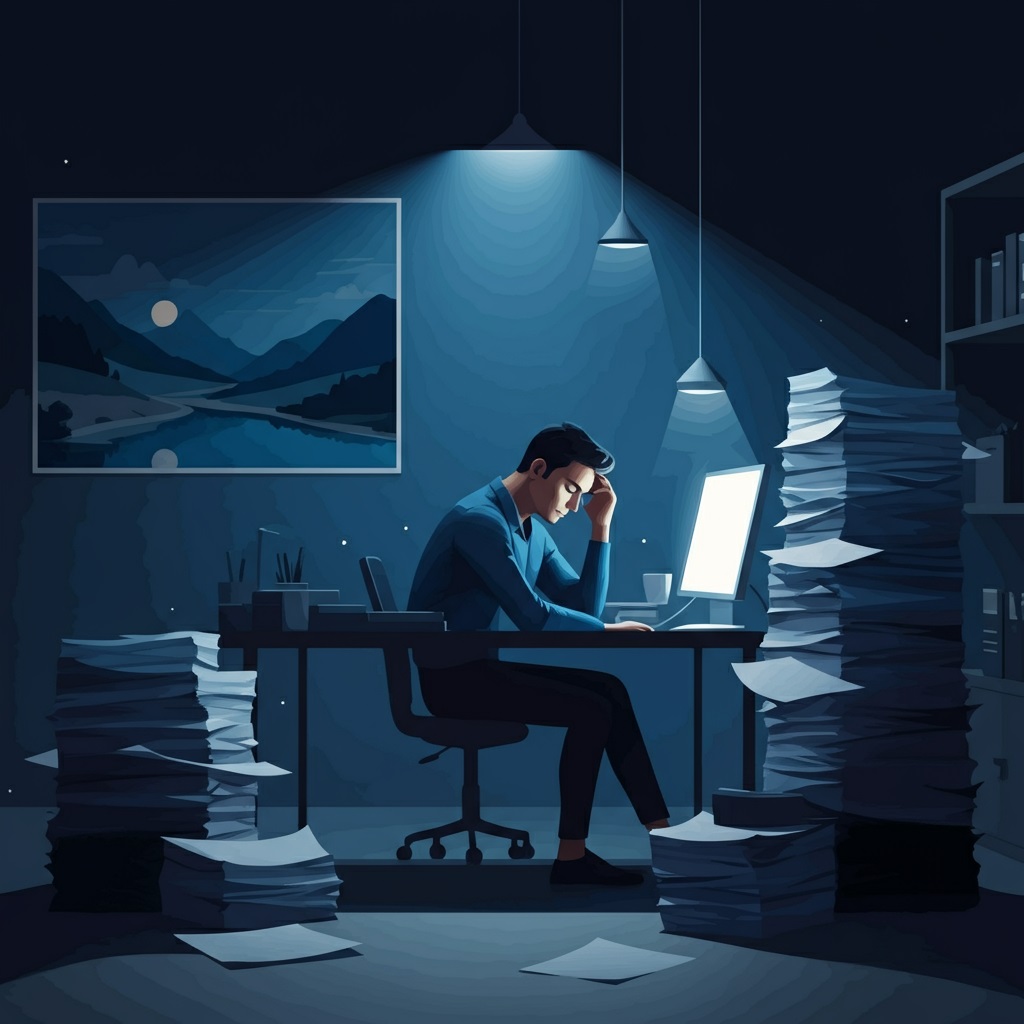Feeling drained all the time? You’re not alone. Many professionals and wellness enthusiasts struggle with persistent exhaustion despite trying everything from caffeine to midday naps. The culprit might not be your workload or sleep schedule but something more insidious: chronic stress.
This blog explores how chronic stress saps your energy, why it’s important to address it, and practical steps to regain vitality. By the end, you’ll have a clearer understanding of stress’s impact on your body and mind, plus actionable tips to reclaim your energy.
What Is Chronic Stress?
Stress is a natural response to challenges. When you’re under pressure, your body releases hormones like cortisol and adrenaline to prepare you for action. This “fight or flight” mode is designed to be temporary.
Chronic stress, however, occurs when that response doesn’t turn off. Long-term pressures at work, financial woes, or personal struggles can keep your stress levels consistently high. Over time, this wears down your physical and mental systems, leaving you feeling perpetually tired.
Acute vs. Chronic Stress
- Acute Stress: A short-term response to immediate threats (e.g., meeting deadlines or sudden emergencies). Your body recovers quickly.
- Chronic Stress: Continual exposure to stressors that persist for weeks, months, or even years. This keeps your stress response system in overdrive.
The Science of Stress and Energy Depletion
How Stress Impacts Your Body
When stress becomes chronic, the effects on your energy reserves are significant. Here’s why:
1. Hormonal Imbalance
Cortisol, often called the “stress hormone,” plays a big role in keeping your energy levels stable. Under normal conditions, cortisol spikes in the morning (to get you out of bed) and gradually decreases throughout the day.
Continuous stress disrupts this rhythm, leading to either consistently high or extremely low cortisol levels. Both cases can leave you feeling fatigued and unmotivated.
2. Nervous System Overload
Your autonomic nervous system (ANS) regulates involuntary functions like heartbeat, breathing, and digestion. Chronic stress keeps the ANS in a heightened state, making recovery harder.
This prolonged state of alertness drains your energy, leaves muscles tense, and compromises your immune system.
3. Disrupted Sleep Cycles
Stress can severely impact your ability to fall asleep and stay asleep. Restorative sleep is essential for recharging your mind and body. Without it, fatigue becomes a constant companion.
Mental Fatigue
Stress doesn’t just affect your body; it takes a toll on your mind too. Constant worrying, overthinking, and emotional strain are mentally exhausting. This affects focus, memory, and your ability to solve problems, ultimately making any tasks feel more draining than usual.
The Domino Effect of Chronic Stress on Energy Levels
Your body doesn’t exist in isolation; everything is connected. Chronic stress creates a chain reaction that tears down various parts of your well-being.
1. Poor Diet Choices
Chronic stress can increase cravings for sugary and unhealthy comfort foods. These “quick-fix” snacks provide a temporary energy boost but lead to energy crashes later.
2. Lack of Physical Activity
When you’re stressed and fatigued, exercising might feel impossible. However, skipping physical activity only exacerbates tiredness by slowing down circulation and reducing the release of energy-boosting endorphins.
3. Altered Brain Chemistry
Prolonged stress affects neurotransmitters like serotonin and dopamine, which are crucial for mood regulation and motivation. This creates a cycle of low energy and diminished mental clarity.
4. Compromised Immune System
Constant stress suppresses your immune system. Being frequently unwell further depletes your energy reserves, worsening fatigue.
Reclaiming Your Energy Levels
The good news? Addressing chronic stress can significantly boost your energy levels and enhance your overall quality of life. Here’s how to start.
1. Identify Your Stressors
The first step is to identify your triggers. Is it your job? Financial concerns? Personal relationships? Awareness of what’s causing your stress empowers you to take targeted action to reduce it.
2. Practice Mind-Body Techniques
Breathing Exercises
Deep breathing activates your parasympathetic nervous system, which helps relax your body. Try the 4-7-8 method (inhale for 4 seconds, hold for 7, exhale for 8).
Meditation & Mindfulness
Daily mindfulness or meditation practices can ease stress and reduce mental exhaustion. Even 10 minutes a day can make a difference!
Yoga
Yoga combines physical activity with deep breathing, reducing tension in both your body and mind.
3. Improve Your Sleep Hygiene
Better sleep is foundational. To improve sleep quality, consider the following:
- Stick to a consistent sleep schedule.
- Keep your bedroom cool, dark, and quiet.
- Limit screen time at least an hour before bed.
- Avoid caffeine late in the day.
4. Fuel Your Body Wisely
What you eat plays a significant role in minimizing stress and maintaining energy. Aim to include nutrient-dense foods in your diet, such as:
- Complex carbs (quinoa, sweet potatoes) for slow-releasing energy.
- Leafy greens and fruits rich in antioxidants.
- Protein-rich snacks like nuts and Greek yogurt.
- Stay hydrated! Dehydration, even mild, can make fatigue worse.
5. Prioritize Movement
Physical movement boosts circulation, improves oxygen delivery to cells, and encourages the production of endorphins for happiness and energy. Start small with 15-minute daily walks or light stretching.
6. Build Healthy Boundaries
Sometimes, chronic stress stems from overcommitting yourself. Set boundaries to protect your personal time and well-being. Learn to say no when necessary without guilt.
7. Seek Professional Help
If stress feels unmanageable, don’t hesitate to reach out to a mental health professional who can help you develop coping strategies tailored to your situation.
Read More👉 Creatine in nutrition and health
Turning Stress into Strength
While stress is unavoidable, it doesn’t have to be debilitating. By taking control of chronic stress, you can reclaim not only your energy but also your sense of well-being. Set small, achievable goals to implement the changes we’ve discussed above and remain patient with yourself as you build new habits.
There’s no finish line in the pursuit of health, only continuous improvement. Don’t hesitate to take that first step today!

